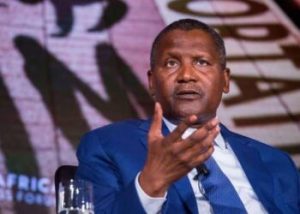In a surprising turn of events, Aliko Dangote, Africa’s richest man, has expressed his willingness to sell his multibillion-dollar oil refinery to the Nigerian National Petroleum Corporation Limited (NNPCL). This announcement comes in the wake of escalating tensions with regulatory authorities and allegations of monopolistic practices surrounding his operations. The refinery, which boasts a capacity of 650,000 barrels per day, was designed to alleviate Nigeria’s long-standing fuel crisis and reduce dependence on imported fuel. However, it has faced numerous challenges since its inception, prompting Dangote to reconsider his investment strategy.
Speaking in an exclusive interview with Premium Times, Dangote stated, “Let them (NNPCL) buy me out and run the refinery the best way they can.” He emphasized that the accusations of monopolistic behavior are unfounded and unfair, yet he is willing to step aside if it means that the refinery can operate without hindrance. This sentiment reflects his frustration with the regulatory environment in Nigeria, which he believes has been detrimental to the success of his venture.

The refinery, which came online last year after nearly a decade of construction and a staggering $19 billion investment—more than double the initial budget—was intended to significantly reduce Nigeria’s reliance on fuel imports and save the country up to 30% of its foreign exchange expenditure on fuel. However, operational challenges, including difficulties sourcing crude oil and regulatory disputes, have hampered its performance. As of May, the refinery had received only 6.9 million barrels of oil from NNPC, far below the required supply, forcing it to seek crude from international markets, including Brazil and the United States.
Dangote’s willingness to sell the refinery underscores the complexities of large-scale investments in Nigeria’s oil sector. He has been vocal about the need for a stable regulatory framework that supports local businesses and encourages investment. The billionaire entrepreneur’s experience serves as a cautionary tale for other investors, highlighting the challenges posed by Nigeria’s regulatory landscape.
In addition to his offer to sell the refinery, Dangote announced that his company would halt plans to invest in Nigeria’s steel industry to avoid further accusations of monopolistic practices. He explained that the decision was made to prevent potential backlash and to encourage other Nigerians to invest in the sector. “Let other Nigerians go and do it. We are not the only Nigerians here,” he remarked, suggesting that there are ample opportunities for investment in the country.
The decision to withdraw from the steel industry is particularly significant given Nigeria’s historical struggles with steel production. Past attempts to establish a robust steel sector have largely failed, with numerous projects remaining dormant or underfunded. Dangote’s previous ambitions to dominate the steel market were seen as a potential game changer, but the recent developments may prolong the industry’s stagnation.
Dangote’s comments come against a backdrop of ongoing fuel crises in Nigeria, which have persisted since the 1970s. His refinery was expected to play a crucial role in addressing these issues, yet vested interests appear to be obstructing its success. “It does appear some people are uncomfortable that I am in the picture,” he lamented, indicating that the challenges he faces are not merely operational but also deeply rooted in Nigeria’s political and economic landscape.
The billionaire’s experiences have sparked discussions about the need for a more supportive environment for local entrepreneurs. Many observers argue that the Nigerian government must create policies that foster growth and innovation, rather than stifling it with excessive regulation and scrutiny. Dangote’s case exemplifies the struggles faced by business leaders who seek to contribute to Nigeria’s economic development in the face of systemic challenges.
As the situation unfolds, the future of Dangote’s refinery remains uncertain. The potential sale to NNPCL could signify a shift in the dynamics of Nigeria’s oil industry, but it also raises questions about the role of private investment in a sector historically dominated by state-owned enterprises. Dangote’s readiness to step aside may open the door for new management and operational strategies that could ultimately benefit the Nigerian economy.
In a country where the quest for energy independence is paramount, the implications of Dangote’s offer to sell are profound. Could this be a turning point for Nigeria’s oil sector, or will it merely serve as a temporary solution to a more significant problem? As the billionaire himself noted, “Everything I do is in the interest of my country.” Whether that interest aligns with the future of his refinery remains to be seen, but one thing is clear: the call for change in Nigeria’s energy landscape has never been more urgent.
As the industry watches closely, the question lingers: will NNPC take up Dangote’s challenge and run the refinery, or will this be another chapter in a long saga of missed opportunities? In the end, the future of Nigeria’s energy independence may rest on whether the state can effectively manage what Dangote is willing to let go.

